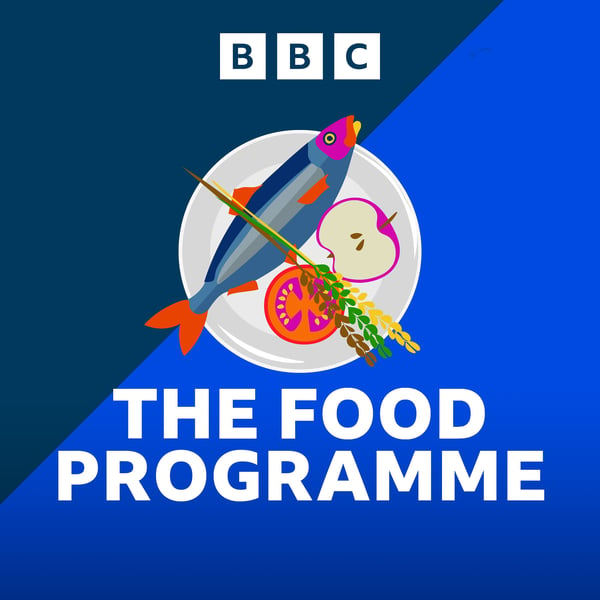What's this emulsifier doing in my food?
The Food Programme
BBC
4.4 • 943 Ratings
🗓️ 17 January 2025
⏱️ 43 minutes
🧾️ Download transcript
Summary
Emulsifiers are among the most common food additives found in ultra-processed foods (UPFs), a much-discussed category of foods commonly defined as those made using manufactured ingredients. They are often packaged and have a long shelf life. Research examining the impact of diets high in UPFs suggests higher rates of obesity and diseases such as type 2 diabetes, heart disease, and cancer.
However, discussions about labeling these foods as "ultra-processed" have also sparked debates about whether their negative effects are primarily due to their high fat, sugar, and salt content, or whether they stem from the effects of processing itself, particularly the additives they contain.
In this episode, Jaega Wise explores one of the most commonly used additives in UPFs—emulsifiers. She investigates how they work, what they do, their history, associated health concerns, and their potential future developments.
Featuring: Nicola Lando and Ross Brown from the online specialty cooking supplies company Sous Chef; Tim Spector, professor of epidemiology at King’s College London and co-founder of the personalized health app Zoe; food historian Annie Gray; John Ruff, Chief Science Advisor at the Institute of Food Technologists; Professor Barry Smith at the University of London’s Centre for the Study of the Senses; Professor Anwesha Sarkar, an expert in colloids and surfaces at Leeds University’s School of Food Science and Nutrition; and Dr. Benoit Chassaing, a research director at The Institut Pasteur in Paris, who studies microbiota and the health impacts of certain emulsifiers.
Presented by Jaega Wise Produced in Bristol for BBC Audio by Natalie Donovan
Transcript
Click on a timestamp to play from that location
| 0:00.0 | Before you listen to this BBC podcast, I'd like to quickly tell you about some others. |
| 0:05.2 | My name's Andy Martin and I'm the editor of a team of podcast producers at the BBC in Northern Ireland. |
| 0:11.3 | It's a job I really love because we get to tell the stories that really matter to people here, |
| 0:16.3 | but which also resonate and apply to listeners around the world. |
| 0:19.6 | And because the team is such a diverse |
| 0:21.2 | range of skills and strengths, we have trained journalists, people who love digging through |
| 0:26.0 | archives, we've got drama and even comedy experts. We really can do those stories justice. So if |
| 0:31.8 | you like this podcast, head to BBC Sounds where you'll find plenty more fascinating stories |
| 0:37.1 | from all around the UK. BBC Sounds where you'll find plenty more fascinating stories from all around the UK. |
| 0:40.3 | BBC Sounds, music, radio, podcasts. |
| 0:43.6 | Hi, I'm Jake Wise and in this episode of the food programme, I'm looking at one of the most |
| 0:47.5 | common types of food additive found in our diets, emulsifiers. |
| 0:55.0 | In the kitchen, emulsifying is something you can do easily. |
| 0:58.0 | For example, take oil and egg yolk. |
| 1:00.0 | If you whisk them together with some vinegar, you get mayonnaise. |
| 1:03.0 | Fully binded, blended together with a consistent texture. |
| 1:07.0 | But that's not what we're making in the kitchen today, |
| 1:10.0 | because this program is about |
| 1:11.5 | industrially manufactured dietary emulsifiers, sometimes listed on food packets as thickness, |
| 1:17.1 | stabilisers or gelling agents. More on that later. |
| 1:23.6 | Emulsifiers are found in mass-produced bread and bakery items. |
| 1:29.4 | Chocolate, ice creams, salad dressings, yogurts, plant-based milks and much, much more. A study in 2023 of ultra-processed |
... |
Please login to see the full transcript.
Disclaimer: The podcast and artwork embedded on this page are from BBC, and are the property of its owner and not affiliated with or endorsed by Tapesearch.
Generated transcripts are the property of BBC and are distributed freely under the Fair Use doctrine. Transcripts generated by Tapesearch are not guaranteed to be accurate.
Copyright © Tapesearch 2025.

